Try something more like this (this comes from a windows web service).
winscp.exe must be in the root directory of the application.
EDIT: see winscp.net/eng/docs/library_install "WinSCP .NET assembly interacts with WinSCP winscp.exe. By default it looks for the winscp.exe in the same folder, where the assembly is stored. For that reason, you should extract the package into the same folder, where you have WinSCP installed/extracted. You can also copy all binaries, winscp.exe and winscpnet.dll, into separate folder. " Try putting the .exe in your app folder.
To 'merge the winSCP dll into your exe have a read of Embedding DLLs in a compiled executable
using WinSCP;
try
{
SessionOptions sessionOptions = new SessionOptions
{
Protocol = Protocol.Sftp,
HostName = EdiConfiguration.FtpIpAddressOrHostName,
UserName = EdiConfiguration.FtpUserName,
Password = EdiConfiguration.FtpPassword,
SshHostKeyFingerprint = EdiConfiguration.SshHostKeyFingerprint,
PortNumber = EdiConfiguration.FtpPortNumber
};
using (Session session = new Session())
{
session.Open(sessionOptions);
TransferOptions transferOptions = new TransferOptions();
transferOptions.TransferMode = TransferMode.Binary;
transferOptions.ResumeSupport.State = TransferResumeSupportState.Off;
// Download the files in the OUT directory.
TransferOperationResult transferOperationResult = session.GetFiles(EdiConfiguration.FtpDirectory, EdiConfiguration.IncommingFilePath, false, transferOptions);
// Check and throw if there are any errors with the transfer operation.
transferOperationResult.Check();
// Remove files that have been downloaded.
foreach (TransferEventArgs transfer in transferOperationResult.Transfers)
{
RemovalOperationResult removalResult = session.RemoveFiles(session.EscapeFileMask(transfer.FileName));
if (!removalResult.IsSuccess)
{
eventLogUtility.WriteToEventLog("There was an error removing the file: " + transfer.FileName + " from " + sessionOptions.HostName + ".", EventLogEntryType.Error);
}
}
}
}
catch (SessionLocalException sle)
{
string errorDetail = "WinSCP: There was an error communicating with winscp process. winscp cannot be found or executed.";
errorDetail += Environment.NewLine + "Message:" + sle.Message;
errorDetail += Environment.NewLine + "Target Site:" + sle.TargetSite;
errorDetail += Environment.NewLine + "Inner Exception:" + sle.InnerException;
errorDetail += Environment.NewLine + "Stacktrace: " + sle.StackTrace;
eventLogUtility.WriteToEventLog(errorDetail, EventLogEntryType.Error);
}
catch (SessionRemoteException sre)
{
string errorDetail = "WinSCP: Error is reported by the remote server; Local error occurs in WinSCP console session, such as error reading local file.";
errorDetail += Environment.NewLine + "Message:" + sre.Message;
errorDetail += Environment.NewLine + "Target Site:" + sre.TargetSite;
errorDetail += Environment.NewLine + "Inner Exception:" + sre.InnerException;
errorDetail += Environment.NewLine + "Stacktrace: " + sre.StackTrace;
eventLogUtility.WriteToEventLog(errorDetail, EventLogEntryType.Error);
}
catch (Exception ex)
{
eventLogUtility.WriteToEventLog("Error in ProcessEdi() while downloading EDI files via FTP: Message:" + ex.Message + "Stacktrace: " + ex.StackTrace, EventLogEntryType.Error);
}
